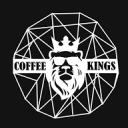Search the Community
Showing results for tags 'liam tung'.
-
The age of ransomware raises questions over NATO's policies on state-sponsored cyberattacks and ransomware. Photo: bing.com NATO has updated its stance on what cyberattacks mean and what response is warranted. The North Atlantic Treaty Organization (NATO) – the 30-nation military alliance between North America and Europe – issued a new communique at this week's Brussels summit outlining how it should respond to national security threats. One of them is cyberattacks, as spotted by The Register. The new policy stance follows high-profile attacks on US fuel distribution network Colonial Pipeline – which paid $4 million to ransomware attackers, half of which was later seized by the FBI – and US meat packer JBS, which paid $11 million to ransomware attackers. The tech world is also still reeling from the SolarWinds hack, which compromised the West's top cybersecurity firms, and was attributed to the Russian government. And not so long ago, Russia was blamed for the massive NotPetya ransomware outbreak, while North Korea was blamed for 2017's WannaCry ransomware attack. In the wake of such attacks, NATO has endorsed its "Comprehensive Cyber Defence Policy", which will see the alliance treat cyberattacks on a "case-by-case basis" and may consider them the same as an armed attack. The NATO alliance committed to "impose costs on those who harm us" if it's deemed necessary. However, the policy of Western governments currently is in reality mostly limited to naming and shaming the country launching state-sponsored hacks. Joe Biden attended his first NATO meeting as US president and is set to meet with Russian president Vladimir Putin on Wednesday. Biden is expected to demand Russia does more to tackle cybercrime within its jurisdiction. The Colonial attack was blamed on a Russian-based ransomware-as-a-service operation. China was also in the spotlight at the NATO summit for its cyber capabilities, disinformation campaigns and expansion of power across the globe. Via zdnet.com

